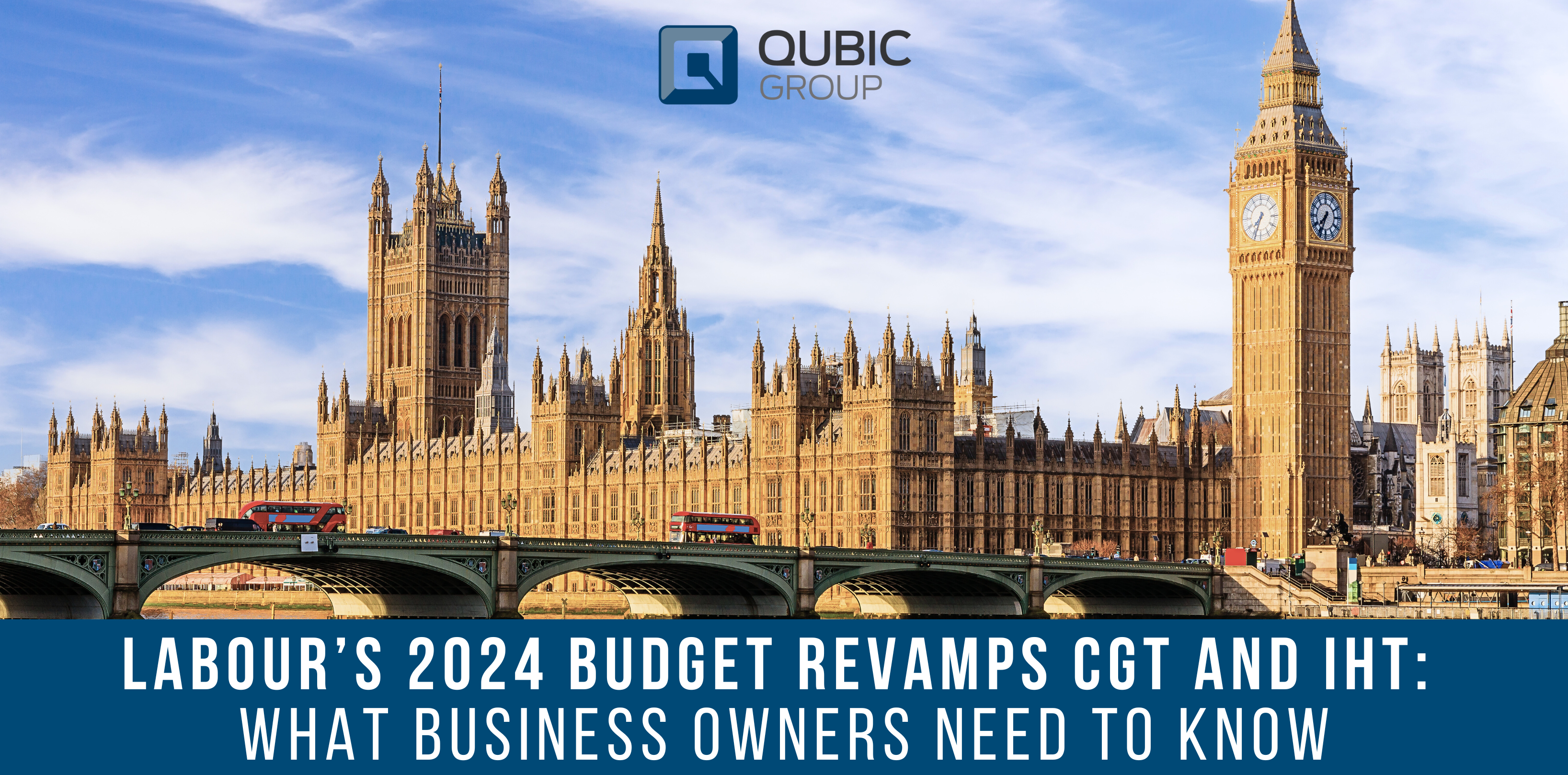
The 2024 Labour Budget introduces a set of changes to the tax landscape, particularly around National Insurance, Capital Gains Tax (CGT) and Inheritance Tax (IHT). Here’s what business owners need to know about these upcoming reforms and how they could impact their tax obligations, employee costs, and succession planning.
Capital Gains Tax (CGT): New Rates and Reliefs
Starting October 30, 2024, CGT rates will increase from the current 10% and 20% to 18% and 24% respectively, aligning with rates already applied to residential property. This change means that any future sale of business assets or shares held in non-listed companies will face higher taxes, although these new rates remain below those in several other European nations, keeping the UK competitive internationally.
Business owners should note that reliefs like Business Asset Disposal Relief (BADR) and Investors’ Relief (IR), currently 10%, will effectively be phased out over the next 18 months. The rate will increase to 14% in April 2025 and to 18% in April 2026. This phased increases provides business owners with a small window of opportunity to adapt to the changing environment which is welcome.
Inheritance Tax (IHT) Reliefs to be Axed
While the majority of estates currently fall below IHT thresholds, Labour’s budget freezes these thresholds until 2030. Significantly, reform to agricultural and business property relief from April 2026 will affect high-value estates, especially for those owning family businesses or farms. The government will provide 100% relief only on the first £1 million of agricultural and business assets from April 2026 and anything above this will be capped at 50% relief (an effective IHT rate of 20%). This change will seriously impact business owners and farmers with substantial holdings, requiring careful planning to mitigate estate taxes when transferring wealth.
In another significant shift, from April 2027, unspent pension pots will be included in the scope of inheritance tax, which could impact around 8% of estates. Business owners who previously used pensions as a tax-efficient means of wealth transfer should consider alternative options for succession planning.
National Insurance: Increased Employer Costs
Labour’s budget introduces a 1.2% increase in employers’ National Insurance contributions (NIC), from 13.8% to 15%, effective April 2024. Additionally, the threshold at which employers must pay NIC will drop from £9,100 to £5,000, meaning more of an employee’s income will be subject to this higher rate. For businesses, especially those with substantial payrolls, this increase represents a significant additional cost that may impact hiring and wage strategies.
Minimum Wage Increase
Alongside changes to employer NICs, the national living wage will rise by 6.7% to £12.21 per hour for employees aged 21 and older, providing a full-time worker with an additional £1,400 per year. Over time, a single-adult rate will be phased in to standardize pay across age groups. For businesses with entry-level or minimum-wage employees, these adjustments mean higher labour costs and may require budget recalibrations to manage increased payroll expenses.
Reforms to Employee Trusts
Following a consultation undertaken by the previous Government in summer 2023, Labour is implementing reforms which will affect new adopters of Employee Ownership Trusts (EOTs). These provide tax advantages for companies that adopt employee ownership models. These changes are designed to prevent misuse while focusing on genuine employee rewards. Business owners and their advisers considering these trusts should review these changes carefully to understand whether they remain suitable and to understand the long-term implications for both the business and its stakeholders.
Loan Charge Review
Finally, the Government announced there will be a further independent review of the loan charge legislation introduced in 2017. The loan charge legislation retrospectively taxed many individuals who had undertaken remuneration-based transactions from 2010 onwards. The review is to “help bring the matter to a close whilst ensuring fairness for all taxpayers” and follows the review undertaken by Sir Amyas Morse in September 2019. The loan charge legislation remains in place and we await further guidance about the review once details are announced.
What This Means for Business Owners
Labour’s 2024 budget contains some very significant tax increases which business owners need to consider. Increased CGT rates, changes to IHT reliefs, higher NICs, and wage hikes will affect profitability and succession plans for large swathes of business owners.
For many, adjusting to these changes will require early planning, strategic investment and consultation with advisors to minimize the long-term impact on their businesses and personal wealth.
How Can Qubic Help?
To navigate these potential changes, Qubic offers tailored tax planning services. Our expertise can help mitigate the impact of higher taxes and leverage current reliefs effectively. The window of opportunity to leverage current tax rates and reliefs is narrowing, and the time to act is now.
We understand that the uncertainty surrounding tax changes can be challenging, and we are here to help you.
For more information on our tax planning services and to discuss your options with one of our team, simply click the link below:
Get in touch: If you're ready, let's talk!
Email: info@qubic-group.com
Call: 0191 232 2001
Kind regards,
QUBIC